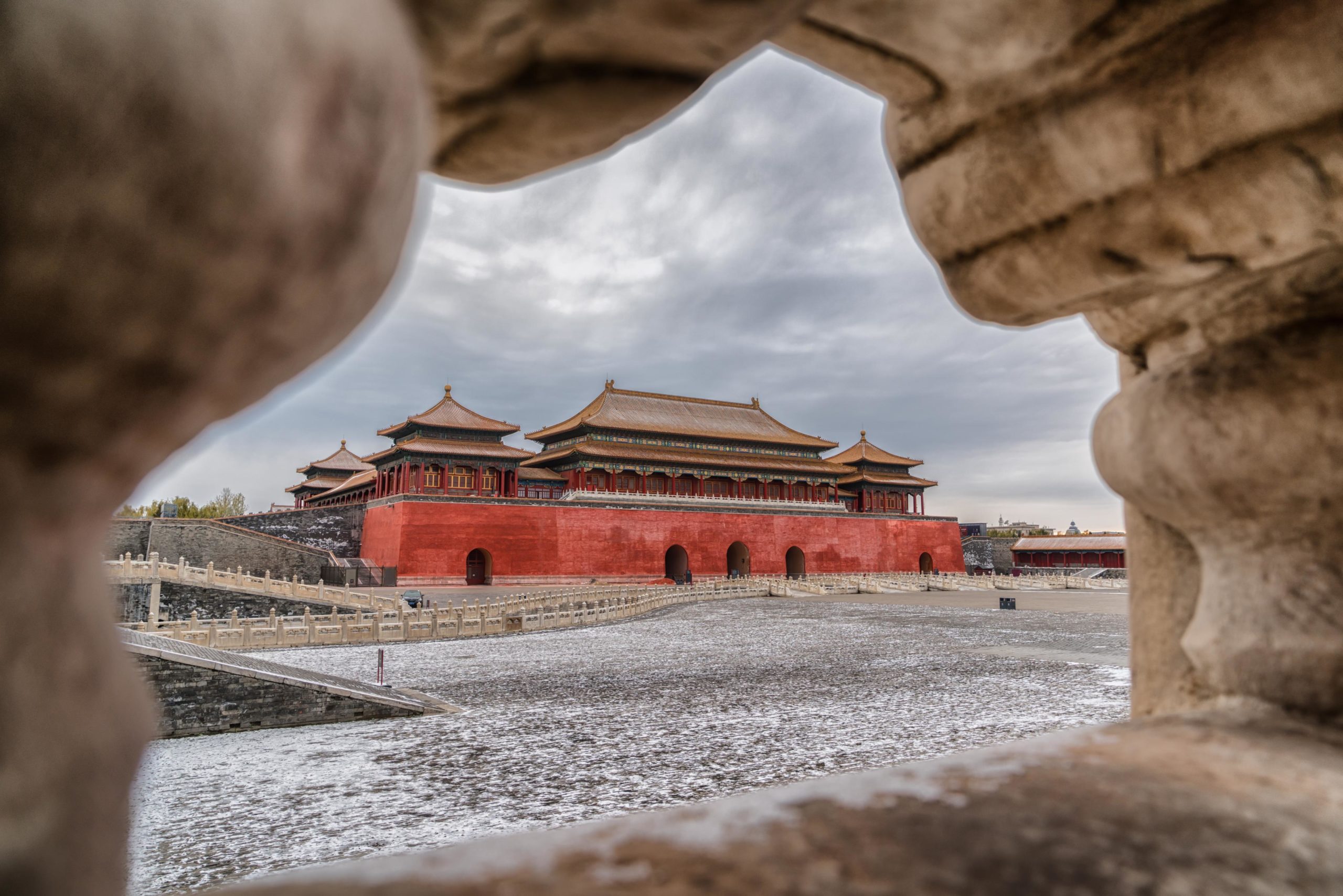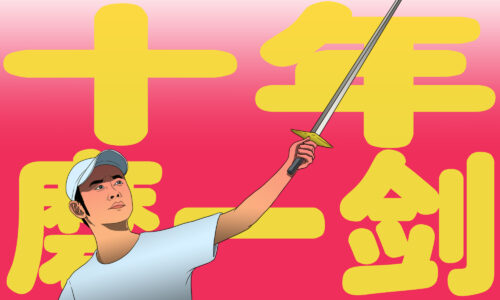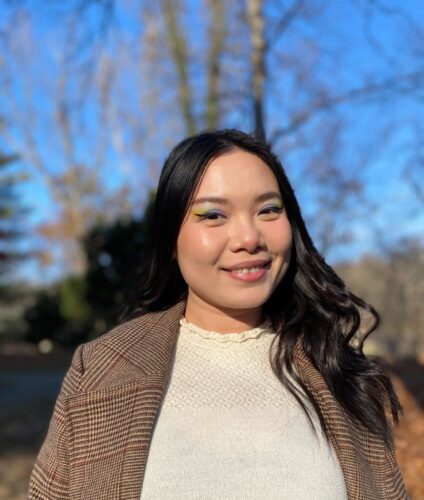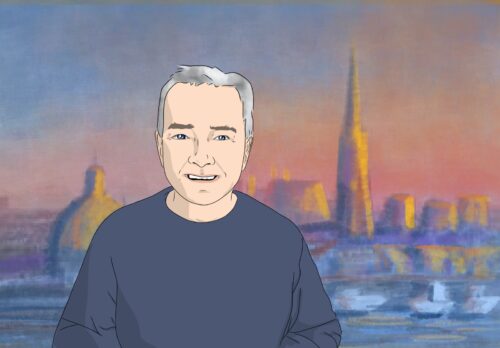The Legacy of the Black Panther Party in China: Q&A with Tyson Amir

“China is trying to figure out who China is…I think they’ll have their own ideas about superiority and inferiority, but it won’t look like the West’s ideas.”
![]()
Poet, rapper, and activist Tyson Amir is motivated to use words to dismantle systematic injustice. He was in Beijing last Friday to promote his book and perform at an event called Culture Shock, organized by the local organization BLK GEN. He took time to speak with us afterwards about his work, how his ideas about power and inequality relate to China, and his general impressions of the country.
Beijing event promotes black visibility, community building in China
Amir came to China, as he put it, to serve as the vanguard and standard bearer for the mission of the Black Panther Party for a new generation. “There’s a historic connection,” he explained. “I come from the lineage of the Black Panther Party, and the Black Panthers came to China in 1970 and 1971. I’ve studied that community, I’ve studied the organization which my elders came from who made that trip. I was inspired by the reasons that they wanted to come, and having an opportunity to do that in many ways was like retracing their steps.”
Amir was born and raised in the San Francisco Bay Area, where he works as an educator, and nearly two years ago published his first book, Black Boy Poems, which weaves spoken word poetry with contextual analysis to explore themes of inequality, inheritance, and self-determination. It was published on October 15, 2016, the 50th anniversary of the Black Panther Party.
Last Saturday in Beijing he also participated in a panel discussion focused on themes in the film Black Panther, co-hosted by Opopo, Africa 2.0, and Black Women in Beijing.
The following interview was done in two parts: immediately after his performance at Culture Shock, and then several days later over phone.
The China Project: What has been unexpected about your time here?
Tyson Amir: So much has surprised me and there’s so much that’s different. I’ve studied the history, I’ve studied the social and political changes, but understanding something on a cognitive level is very different than understanding it in a real tangible and practical sense. Seeing the different communities, being here at this event tonight, you have people that come from all over the world that are here in China and are building these communities. Aside from that, being here and seeing the history, seeing the people, and also seeing the changes that China is experiencing. You can’t get that from a documentary, you can’t get that from a book, you can’t get that from word of mouth, you have to see it in order to truly experience it and truly understand it.
Do you think there’s something about spoken word and poetry that resonates particularly here, in the context of China’s long history of poetry and literature as art forms?
I really want to see that. I think the answer to that question is pending. My experience has been mainly with English-speaking communities here in China. Now, aside from that, people who have created beautiful works of art can appreciate other folks who are doing that, and that’s why you hear many different folks talk about art as a bridging mechanism between different communities. So I think the work that I do that’s created thousands of miles away can have an impact and can be received here. But I heard recently, I don’t know if this is true or not, that they’re talking about banning hip-hop, so that’s something that I want to research a little bit more.
Report: China to ban tattoos and ‘hip-hop culture’ from TV shows
Art can be something that brings people together, especially art that is created with intention and purpose and is focused on a specific agenda. I feel that’s the type of work that I try to do. I think that if more folks from the Chinese context are able to experience that, they’ll be moved by that, and I’ll be moved by what they share as well, and that’ll be a beautiful thing for us to build together. I think that we can learn from one another through all that we create.
A lot of your work focuses on engaging with structures that are imposed from without, being constrained by systems which you necessarily didn’t get to play a part in creating. Are you seeing a connection with what China has also faced in some regards?
Yes, and I want to see more of that. Because of the history I mentioned about the Panthers being here in ’70 and ’71, that was part of that connection. What China was trying to do [at that time], trying to raise itself up from imperialism and colonization, be it from the Japanese or from Western European powers, the Black Panther Party was doing the same thing. Different context, because the Black Panther Party was in the context of being a colonized people within a colonial state, and China was a state itself which had an outside colonizing force come in. Two different things, but the goal is the same, we want our people to be able to be a self-determining people, therefore, we have a common interest. Why don’t we support each other in trying to do that?
China now has a different understanding, it is evolving…I don’t know if China really knows who China is as this point in time. We definitely know our struggle, because our struggle is the same as what it was in ’70 and ’71. It’s the same as what it was in 1619 when the first group of folks that would be identified as black were brought to the British colony which is now the United States of America and were fighting for their freedom and liberation. That narrative has not changed, so it’s very clear what we’re trying to accomplish. [As for what China is trying to accomplish,] I think they’re trying to figure that out. We might be able to figure it out together.
For readers who may not be familiar with the history, can you expand a little about the historical connections between China and the Black Panther Party?
The connections are very deep between the Black Panther Party and China, especially during the era of Chairman Mao. For example, shortly after their formation in October 1966, the Black Panther Party made the decision to focus on the seventh of their ten guiding points: to end police brutality in their communities. In order to do that, they needed guns, and they needed the funds to buy them. So they started selling copies of the Little Red Book, which was a collection of quotes by Mao. They would buy the book in Chinatown for five or ten cents and then sell the books on the University of California Berkeley campus for a dollar. That’s how they raised the money to buy the guns.
The [Black Panther Party] were already studying Mao because the Party considered themselves a Marxist-Leninist party, and later they considered themselves a Maoist-Leninist party, so Mao exerted a huge influence on their philosophical agenda. It was mandated that any member of the Black Panther Party had to memorize a number of quotes from the red book, so members had to know Mao’s words. They had a deep connection to Mao.
In 1970, Elaine Brown and Eldridge Cleaver went to China, and in 1971 Elaine went with Huey P. Newton. Huey insisted that they go to China before President Nixon did, because Nixon was about to change the nature of the relationship between the United States and China. Elaine wrote about the trip in her book A Taste of Power. Elaine is like my mother, and because we have that connection, I wanted people to also feel connected to the history that I’m connected to. I think it is especially timely right now for [foreign] communities living within China and for China itself to be reminded of this history.
[Editor’s note: Amir wrote more about this in an essay for the Beijing-based OPOPO, a platform that promotes positive images of Africa and its diaspora.]
During your visit to China, did you see the legacy of the exchange between the Black Panther Party and China from that time period? How do you think the legacy of that exchange might manifest itself?
No, I don’t see it. The world is different now than it was in 1970. The Black Panther Party doesn’t exist anymore, so there can’t be a continued relationship. China is in a completely different place now than it was then. Back then, China’s relationship was way stronger with global struggles. China saw the struggles of other peoples and made sure those struggles were its business.
China is trying to figure out who China is. To go from what many people would describe as a heavily oppressive regime and then making the decision to open the economy and slowly making some political change, but then the recent changes by the president to remain in power indefinitely, that’s a step in a different direction. They’re trying to figure themselves out.
“I think the possibility exists for [Chinese society] to create space for other groups of people…That’s why the history of connection between the early People’s Republic of China and the Black Panther Party is so important, it’s so timely right now.”
Also an extremely important consideration is that, in the past five to six centuries, money has won out. If you claim a moral power, [it’s] rooted in some kind of moral philosophy, but [when] people are making money in ways that disrupt that moral stance, what you have is capitalism all over again, just with a new face behind it.
People are making so much money [in China] now that they’ll use all the power and resources they have to make that continue to happen, which means that the political direction will change to ensure they can continue to make that money.
Do you think that, along with China’s increasing global economic dominance, China will show more interest in shaping global legal or decision-making institutions according to a particular set of values? What does the world look like when China makes the rules?
I don’t know if China will prioritize trying to heavily influence existing institutions in other places. As they continue occupying more economic space, I don’t think China has a heavy focus on shaping the world’s political values. If they control the economic system then I don’t see them [being interested in] reshaping education systems according to certain moral values.
But I do think as they become more powerful their way of being the global enforcer is and will be different than the way of the United States. I have this quote from my poem, “Theirs is a pathological praxis, rooted in a xenophobic, schizophrenic, racially insecure, culturally immature social apparatus forcing them to concoct a reality which confers to them an unearned status.” The U.S. inherited that from the British. So much is in the psyche of Western civilization, but the Chinese have their own, different superiority complex, using the Great Wall to block outsiders out and that kind of thing. But they also have their own history of colonization, and they have also been influenced by white supremacy. I think they’ll have their own ideas about superiority and inferiority, but it won’t look like the West’s ideas.
I don’t think there is a moral or ethical aspect guiding how China positions itself in the world, it’s more economically motivated — they’ve got money, they can build infrastructure to have the opportunity to make more.
Earlier this year there was a lot of discussion about racism in China, particularly for example the use of blackface in a skit during a Chinese New Year special on CCTV. That’s just one instance, but one that has been referenced a lot. In your book, you talk about racism not just being a belief in the superiority of one group over another, but the deployment of power to make that belief into a material reality. Instances like the CCTV skit have raised the question of the deployment of this type of power in Chinese society, both within Chinese society itself as well as in attitudes toward outsiders. Can you talk a little bit about this, based on your encounters in China?
[In terms of] a sense of superiority and inferiority, being colonized, you’re going to get that. The Chinese received that, everybody on the planet has been indoctrinated with those ideas, people have been indoctrinated to have certain definitions of beauty. When those things are being superimposed on you it becomes different, and when that sense of superiority is supported with institutions, [it can be used] to suppress and control certain groups of people.
China has their own thing that predates [the ideas about superiority derived from] colonialism. They have had their own historical, ethnic, linguistic battles — this empire’s expansion over here and this dynasty’s control over there, the way that China was formed — that’s not representative of all of the people who originally existed in this land. That’s their own thing.
Do I think China is trying to replicate a system of racism within their society like what exists within Western societies? No. But do they have a power hierarchy influenced by their own sense of superiority? Definitely. They have a long history of that. These are philosophies that are deeply embedded in the soul of the people.
Is China racist the same way that Western civilization is? No. Does China have racist opinions and tendencies like those that can be seen in the West? Yes. However, I think the possibility exists for [Chinese society] to create space for other groups of people. I do believe this is an opportunity for that. That’s why the history of connection between the early People’s Republic of China and the Black Panther Party is so important, it’s so timely right now, and that’s why I wanted to bring that up.
China is becoming so powerful right now, but they’re not a homogenous population. In Mao’s time, there were other people coming into China, but not like now. So China is increasingly becoming more of a mixed population, and in that the nativism, the superiority complex, can become more prominent, in how people who are viewed as “others” are treated within a society.
I think we need more time to answer this question, and it can go either way. What I’d like to know more about is where the conversations about this — that could possibly influence Chinese society to move in a more inclusive direction — are happening right now.
There’s some characteristics specific to Chinese culture which may present a more inclusive way forward. Many folks I know who speak English and know some Mandarin, who are people of color, they’ve told me about instances in which they overheard people saying negative things about them, and when they respond to those folks using Mandarin, people are extremely apologetic. They don’t want to lose face or look bad, but also they may be genuinely open to learning. It’s different than being called out on some negativity in the context of Western society. If you have people who are culturally more able and willing to hold themselves accountable, then I think that’s a different element in the foundation of the fabric of society. That’s an opportunity.
Do you think more can or should be done to raise awareness of the history of the connection between the Black Panther Party and China?
I do think that China is moving in a very different direction right now than it was at that time. But Mao still has a huge cultural influence. If people hear more about how Mao spoke about how important it was to support the struggles of black people, and of all peoples fighting for liberation, that could exert further influence. It’s something that can be applied in China’s thinking about how it deals with other communities. Standing in solidarity with struggle, those are powerful specific words. Because right now there’s a different dynamic in Chinese culture. To be connected to that history particularly right now is very important and can have an impact on how people see themselves.
I don’t know where these conversations are happening. Many people coming from Western contexts are not even familiar with that history, so how is that conversation ever going to happen if we don’t know about it? I know that’s why I wanted to go to China. My elders did that before me. They did it for specific reasons, to stand in solidarity. That inspired me, I wanted to engage in that. I feel that’s a history that has been disconnected from people for a number of reasons, but it’s important to remember that folks were trying to stand in solidarity [at that time]. Reconnecting that with China, because China is so important right now, and opening people’s eyes to history that isn’t very far removed from us, that’s why I wanted to go there.
![]()





